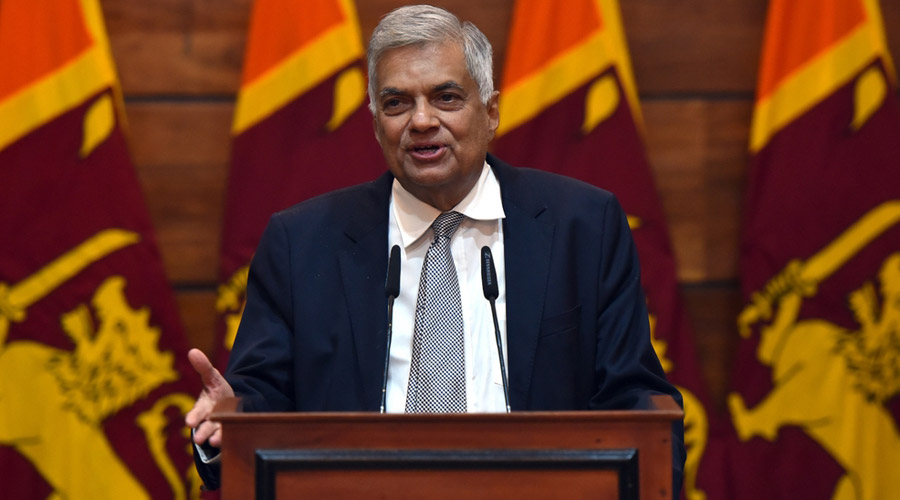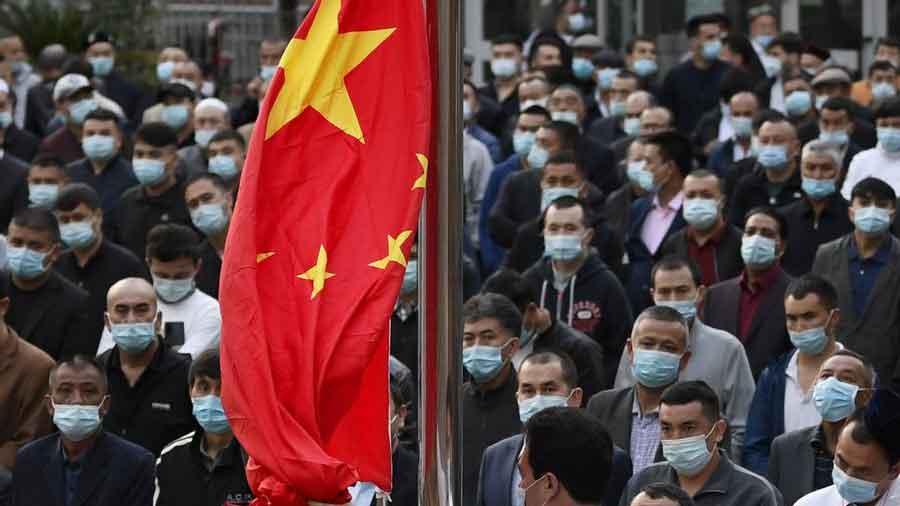India on Thursday abstained on a draft resolution in the UN Human Rights Council in Geneva on promoting reconciliation, accountability and human rights in Sri Lanka which was adopted.
While abstaining, India stressed that it will work with Sri Lanka and the international community to attain the related objectives of legitimate aspirations of Tamils of Sri Lanka and prosperity for all Sri Lankans.
The draft resolution on Promoting reconciliation, accountability and human rights in Sri Lanka' was adopted at the 51st Session of Human Rights Council in Geneva, with 20 nations voting in favour in the 47-member Council, seven against, including China and Pakistan, and 20 abstentions, including by India, Japan, Nepal and Qatar.
The 20 countries that voted in favour of the resolution included, the United Kingdom, the United States, Argentina, Finland, France, Germany, Mexico, the Netherlands, Paraguay, Poland, Republic of Korea and Ukraine.
In a statement during the adoption of the resolution, Ambassador Indra Mani Pandey, Permanent Representative of India to the UN & other International Organizations, said that while India has taken note of the commitments by the government of Sri Lanka on issues of implementation of the commitments in the spirit of the 13th Constitutional Amendment, meaningful devolution and the early conduct of provincial elections, we believe that the progress towards the same remains inadequate.
India urged Sri Lanka to work meaningfully towards early implementation of these commitments.
"Achieving prosperity for all Sri Lankans and realising the legitimate aspirations of Tamils of Sri Lanka for prosperity, dignity and peace are two sides of the same coin," Pandey said.
He stressed that as an immediate neighbour, India has substantially contributed to the relief, rehabilitation, resettlement and reconstruction process in Sri Lanka after 2009.
More recently since January this year, India has stepped up and provided unprecedented assistance to the people of Sri Lanka to face the challenges of the recent economic crisis.
"In finding a lasting and effective solution for peace and reconciliation in Sri Lanka, India has always been guided by the two fundamental principles of support to the aspirations of the Tamils for equality, justice, dignity and peace and unity, territorial integrity and sovereignty of Sri Lanka, he said.
The significant feature in the resolution is its call to investigate the on-going economic crisis and prosecute those responsible.
It also "calls upon the government of Sri Lanka to address the ongoing economic crisis including by investigating and where warranted prosecuting corruption including where committed by public and former public officials and stands ready to assist and support independent impartial and transparent efforts in this regard".
The resolutions on promoting reconciliation, accountability and human rights in Sri Lanka were previously moved in Geneva in 2012, 2013, 2014, 2015, 2017, 2019, and in 2021.
Sri Lanka had expressed opposition to the resolution as a violation of its sovereignty other than in 2015 when they co-sponsored the resolution.
According to the Lankan government figures, over 20,000 people are missing due to various conflicts including the three-decade brutal war with Lankan Tamils in the north and east which claimed at least 100,000 lives.
The Tamils alleged that thousands were massacred during the final stages of the war that ended in 2009 when the government forces killed Liberation Tigers of Tamil Eelam (LTTE) chief Velupillai Prabhakaran.
The Sri Lankan Army denies the charge, claiming it as a humanitarian operation to rid the Tamils of LTTE's control.
At the end of the civil war, the United Nations accused both sides of atrocities, especially during the conflict's final stages. International rights groups claim at least 40,000 ethnic Tamil civilians were killed in the final stages of the war.












